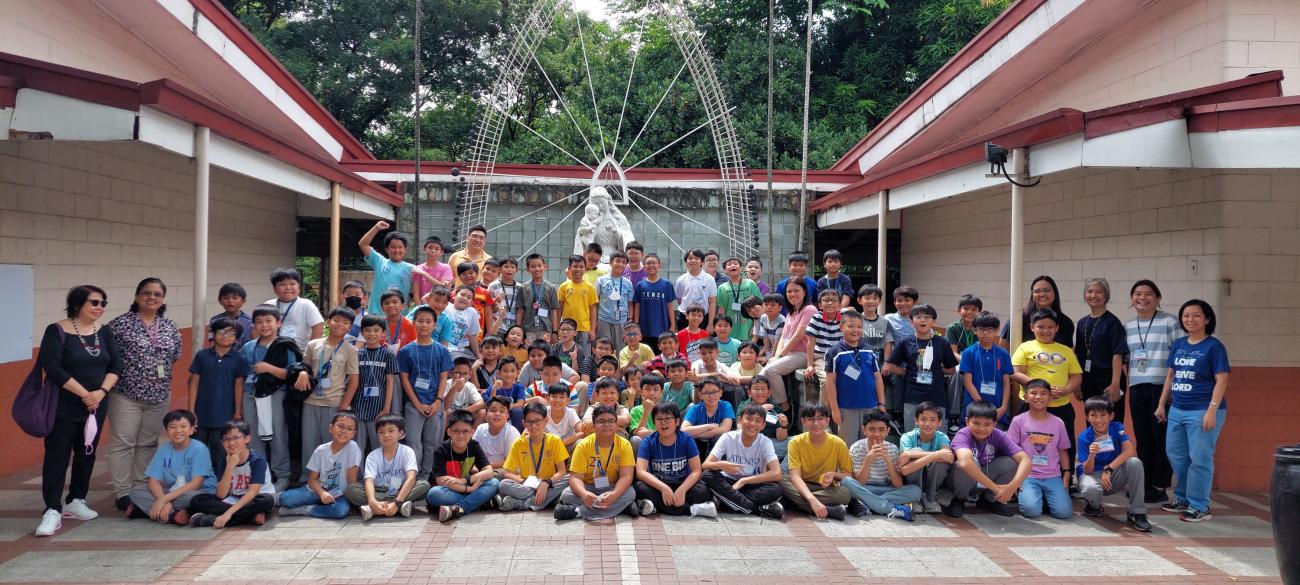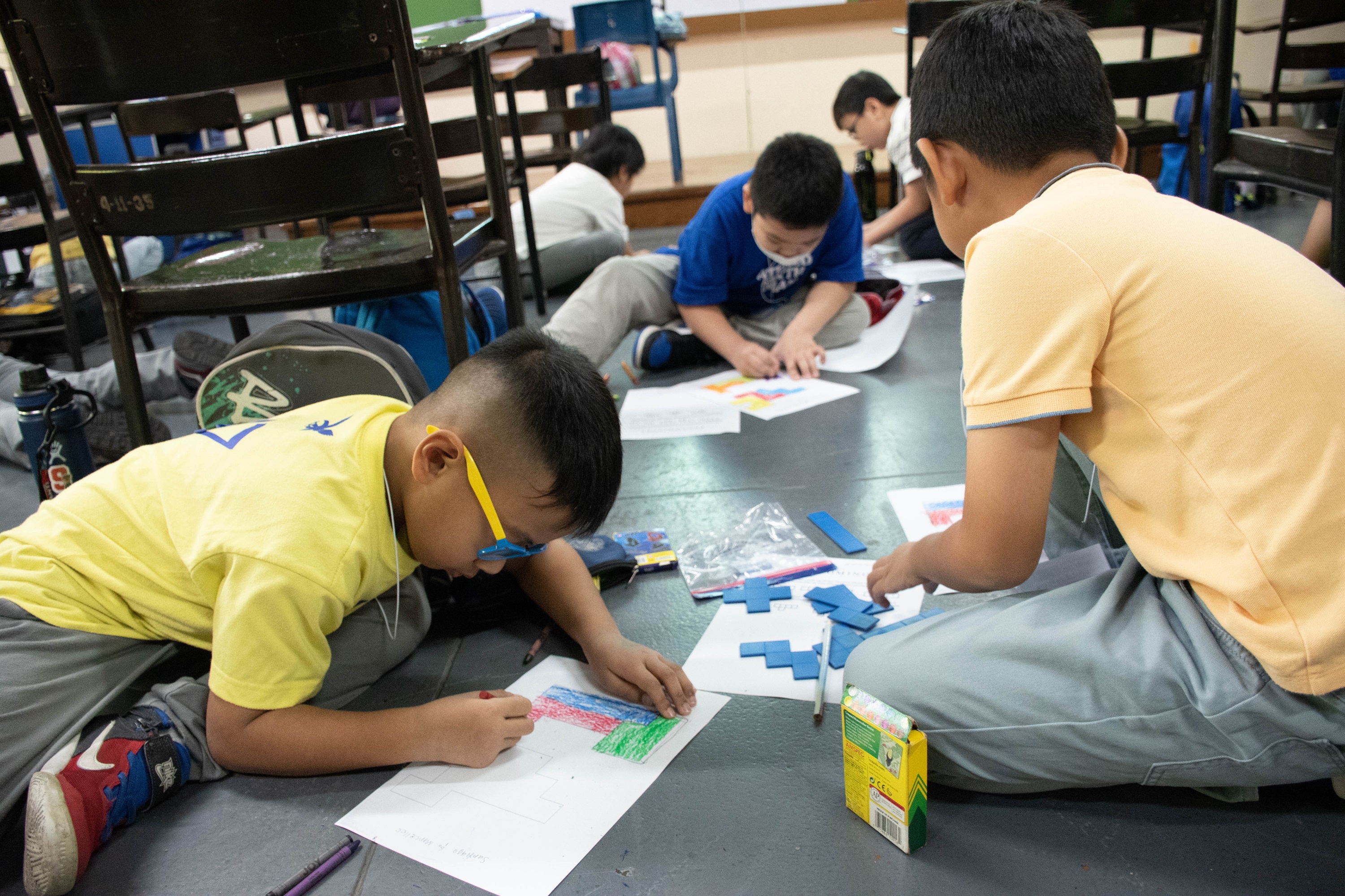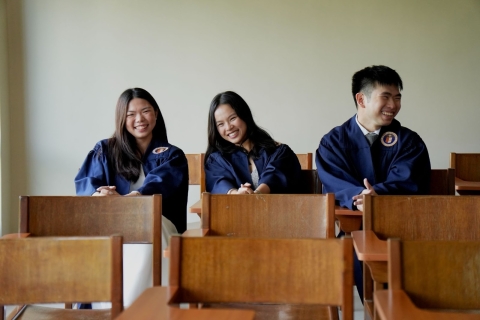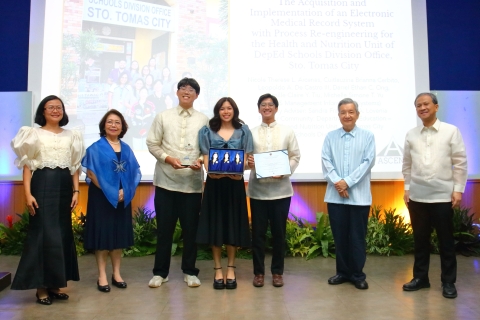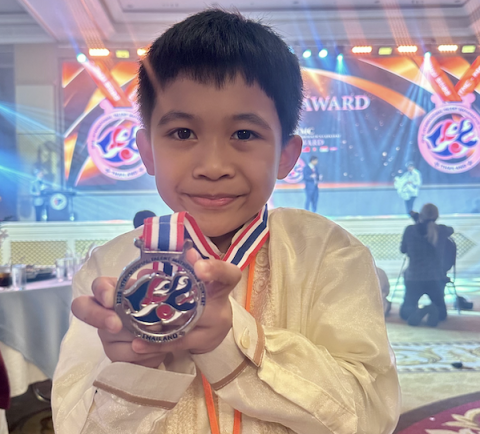Ateneo Grade School students join Summer Math Problem Solving Program
16 Sep 2024 | Chara Deanna F Punzal
Selected Grades 3 - 6 students from the Ateneo Grade School (AGS) joined the Summer Math Problem Solving Program last 18 - 21 June 2024. The four-day problem-solving enrichment program allows students to engage in problems and activities designed to enhance their number sense, visual manipulation, and logical reasoning.
“We've been sending contestants to various Math Olympiads and we are currently trying to develop the problem-solving skills of yet a new group of boys… Maraming mababait at magagaling pa rin," said Grace Uy-Yn, Subject Area Coordinator for Mathematics as she described her excitement in collaborating to develop the Summer Math Problem Solving Program.
The Grade 3 students, although being the youngest group, welcomed the challenge of answering several number puzzles and basic visual manipulation activities, such as Connect the Numbers, Numbrix, Sudoku (using pictures), Pentominos, Reverse Addition Table, and Go Fish. These activities aimed to enrich students’ creativity which is an important problem-solving skill.
|
|
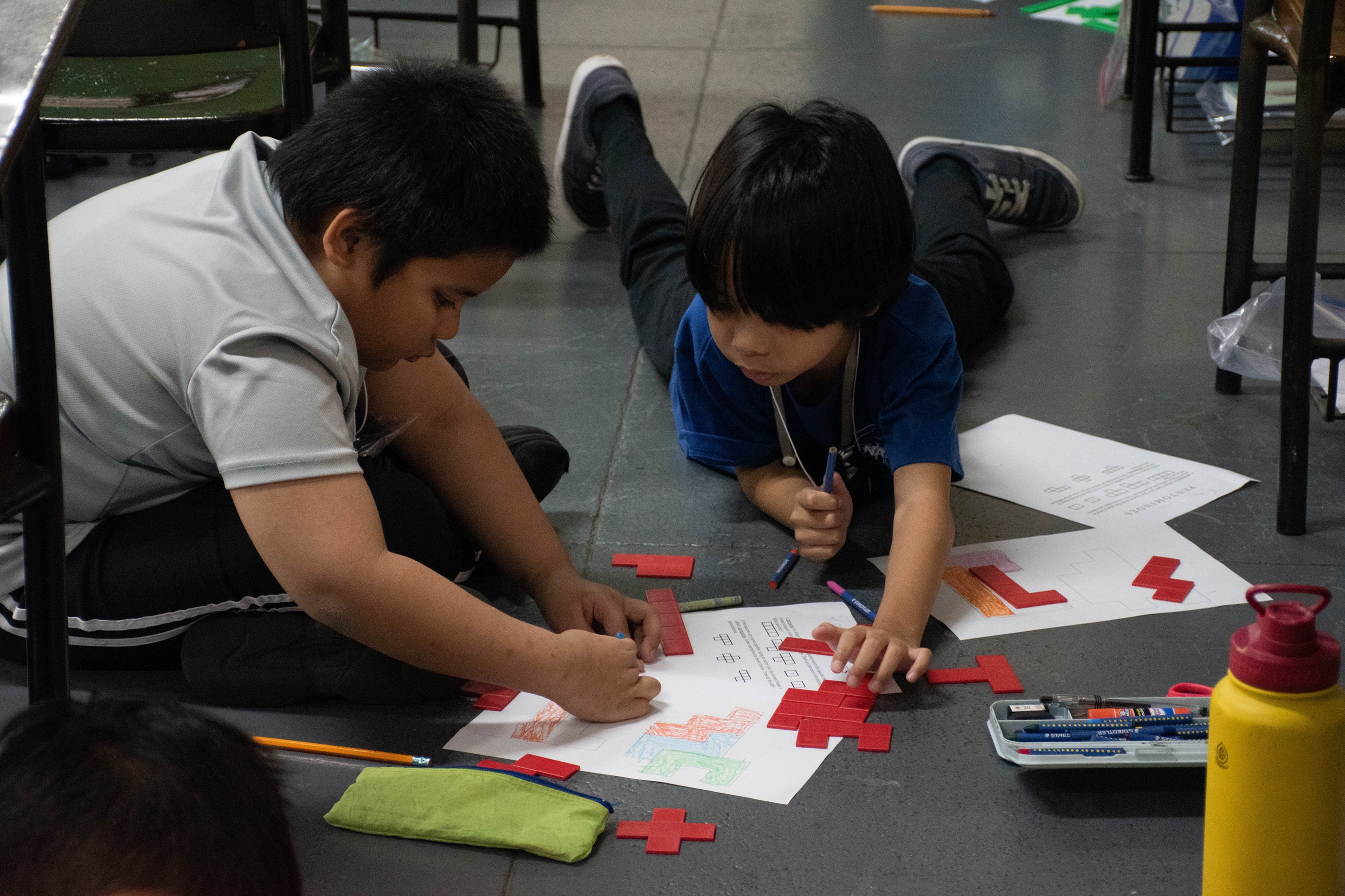 |
Grade 4 students proved their love for math by taking on a variety of number and geometry problems. “Math is fun,” “Math is useful,” “Math is difficult”-- these are some of the claims of the Grade 4 students during the first day when they introduce themselves and their love for math.
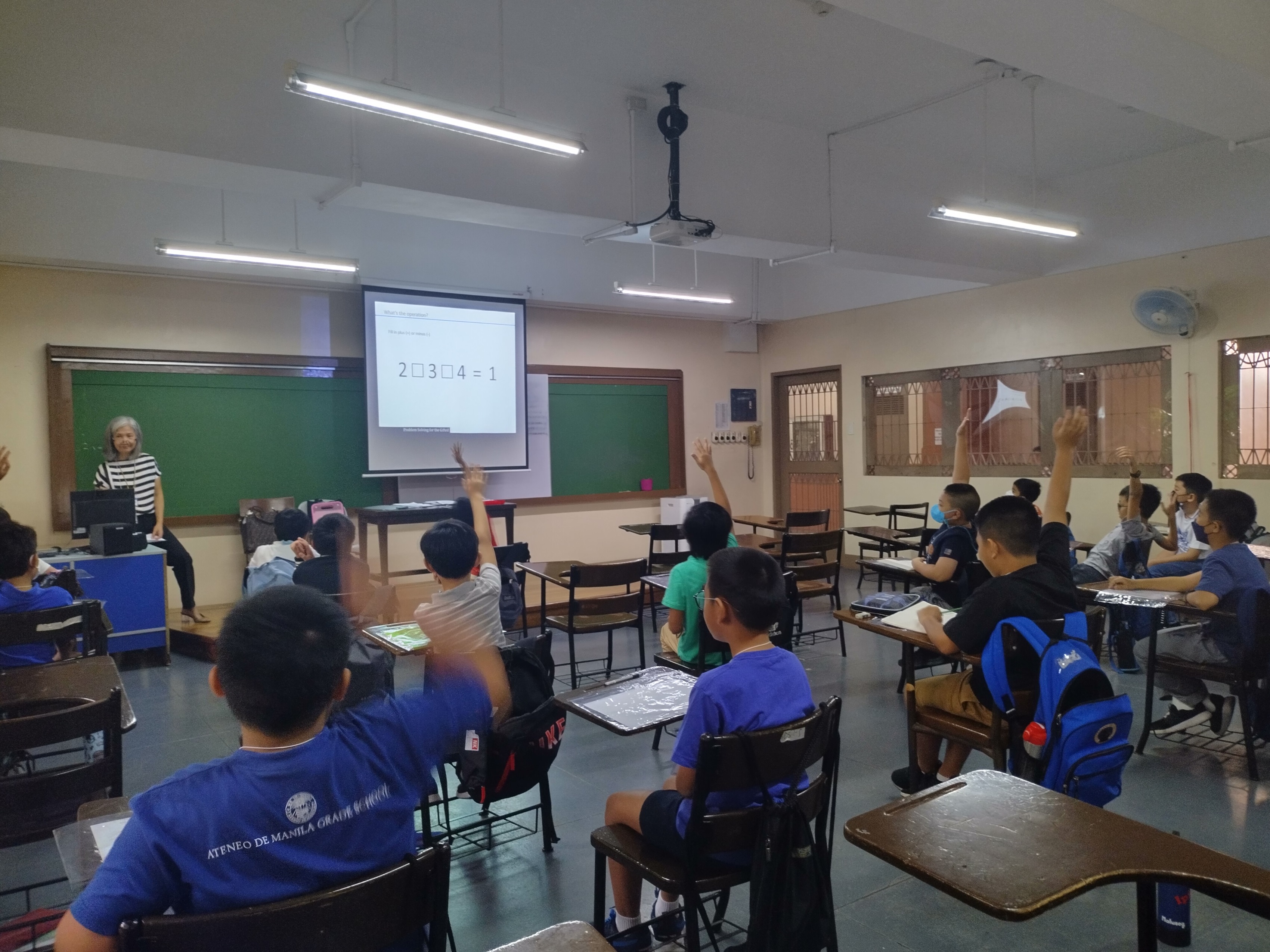
Several activities for the Grade 4 students included number crunching, such as Math Bingo, Twisted Addition Table, and what turned out to be one of their favorites, Eliminators. All these activities had students identify number/s that fit a list of descriptions (odd/even, divisible by a certain value, etc). They also had several hands-on activities that aimed to develop their problem-solving skills, such as Odds and Evens activity, No-Three-in-a-Line activity, King Arthur, Jack and the Beanstalk, and colored shapes.
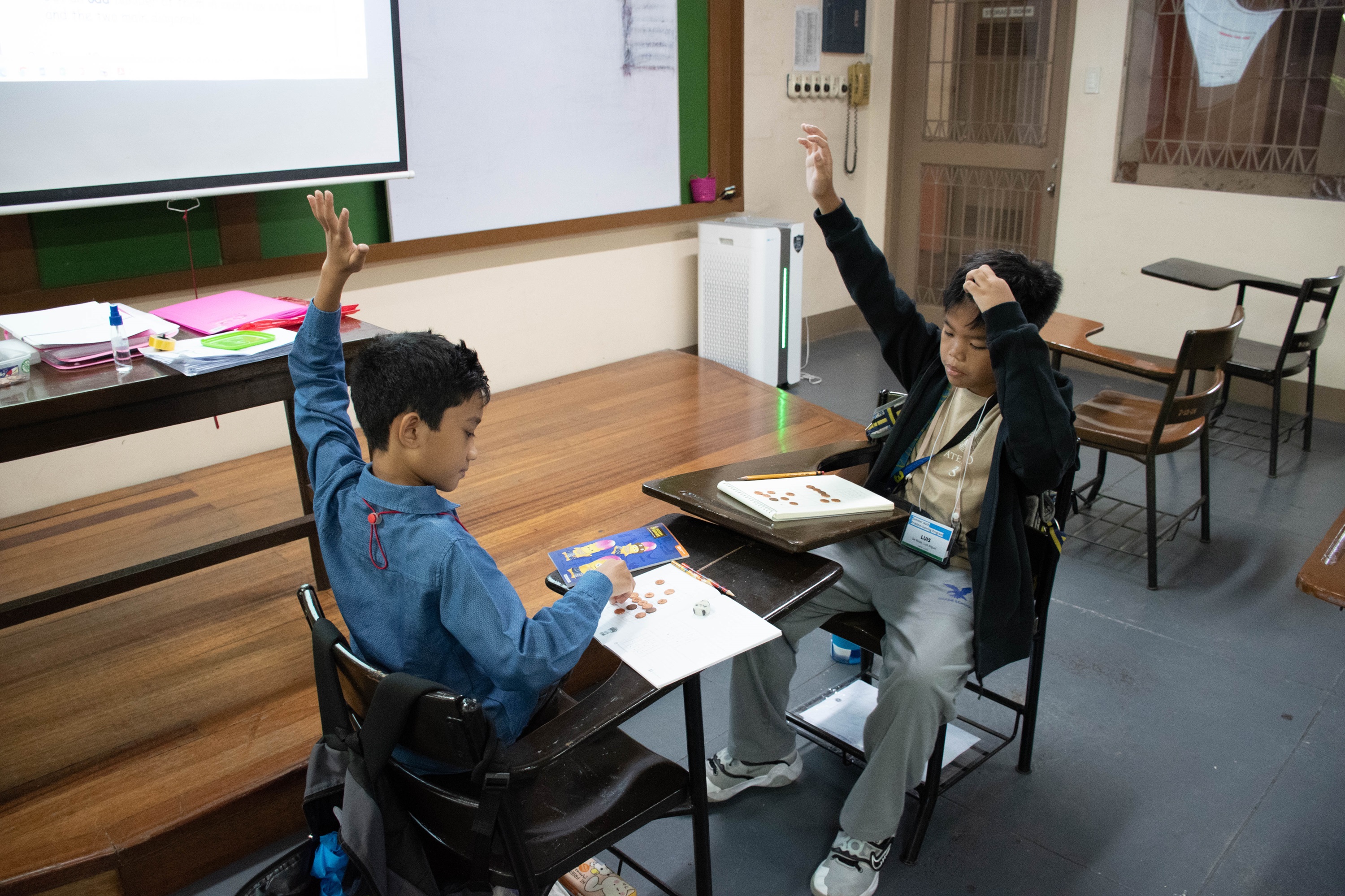 |
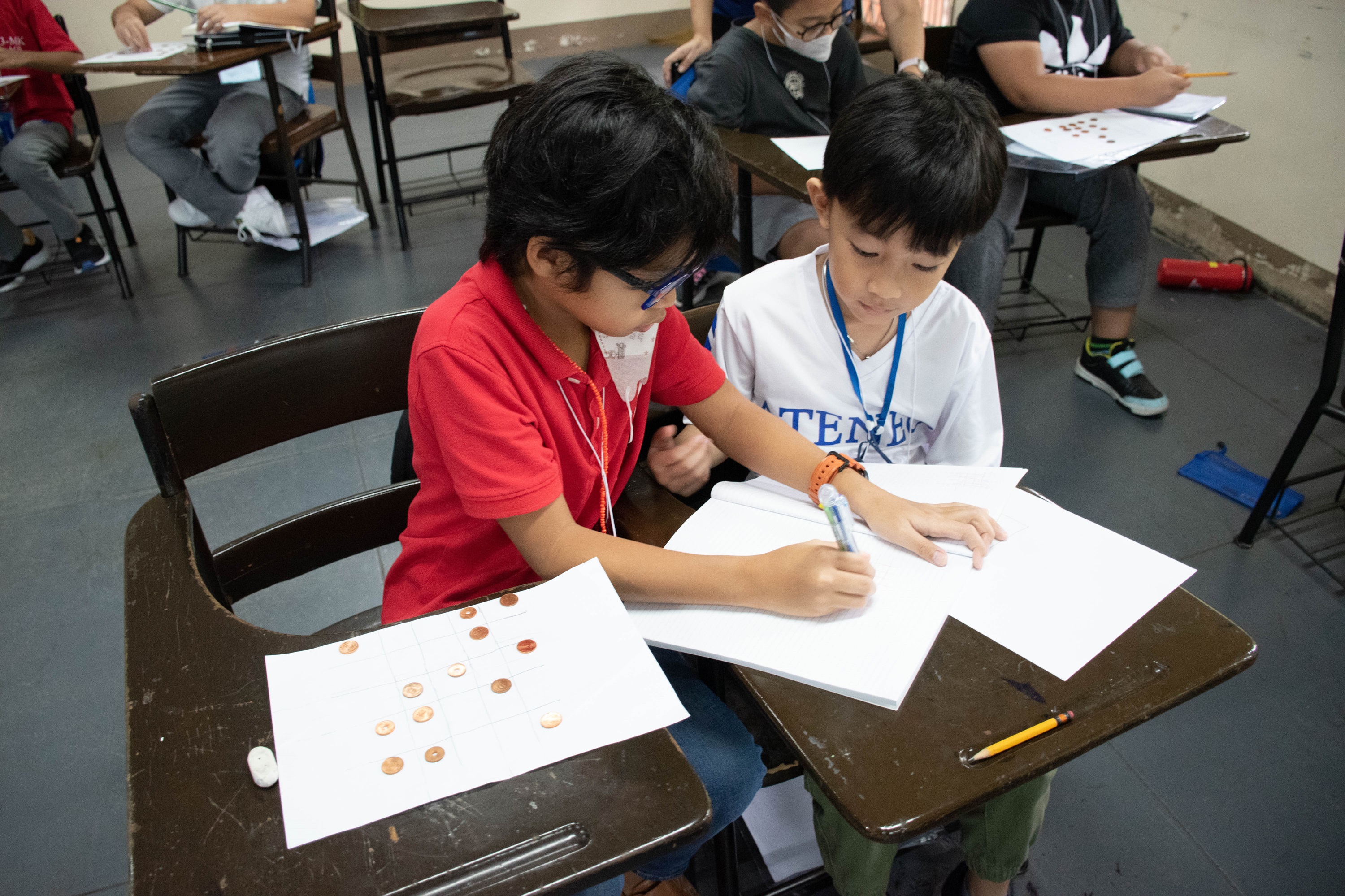 |
Throughout the four days, the students learned to be systematic in solving different types of problems. They were taught the value of creating organized solutions and learning how to explain their work. The students immediately showed how they can follow instructions and at the same time gain insights through the process during their origami activity.
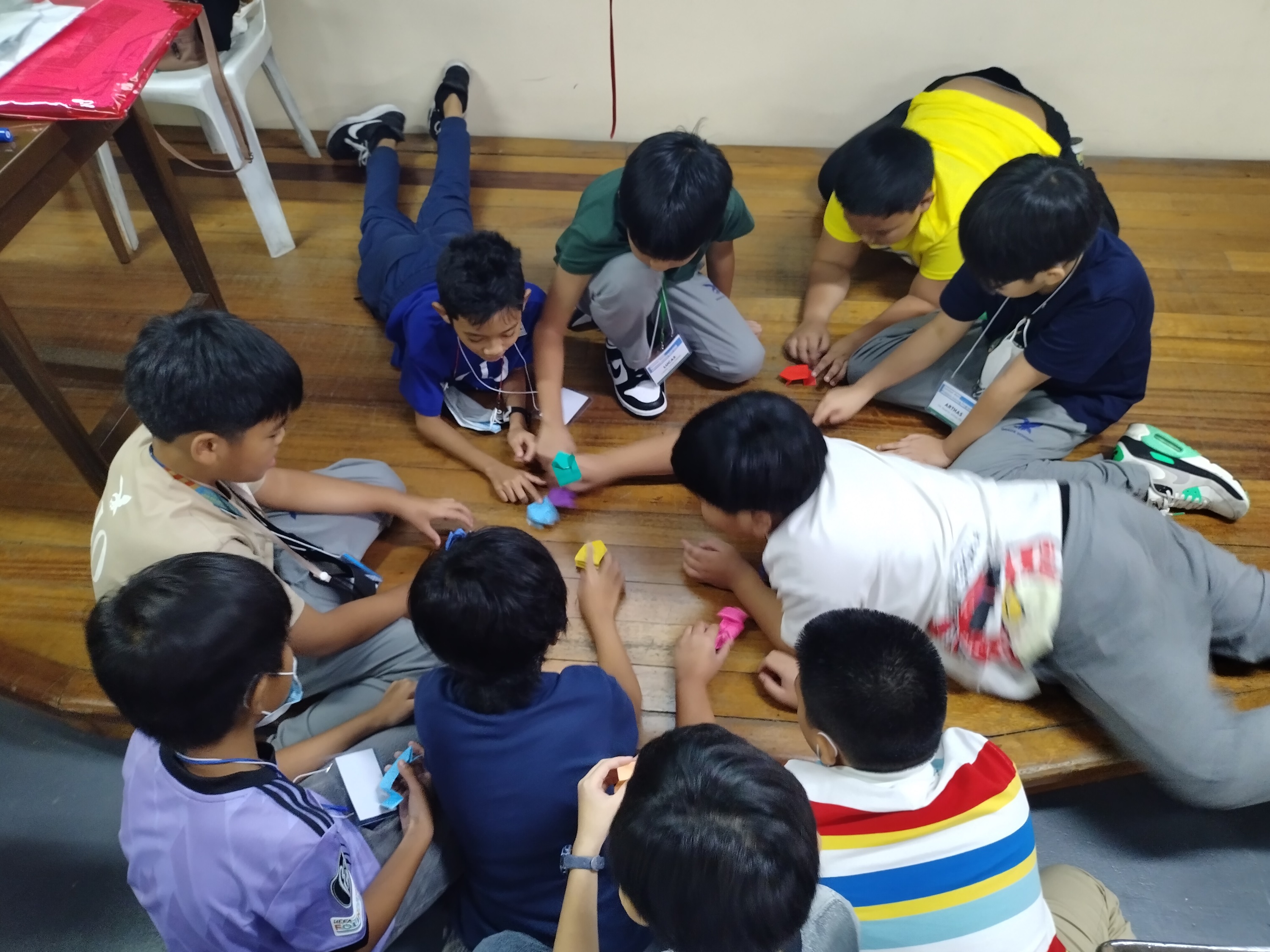
For Grade 5, an assortment of arithmetic and geometric puzzles and activities featuring problem-solving heuristics was prepared for students. The highlight of the four-day program was the students' ability to share their insightful thought processes and how they strategize to solve different problems almost independently. They demonstrated their ability to stay on task even when faced with difficulties. In fact, one of the students shared during the last day that he spent 3 hours the night before to solve the 6x6 ‘challenge’ KenKen puzzle.
The Grade 6 students’ enthusiasm was evident as they engaged in solving various puzzles and problems given to them. They also showed their ability to work together and explain their work to each other.
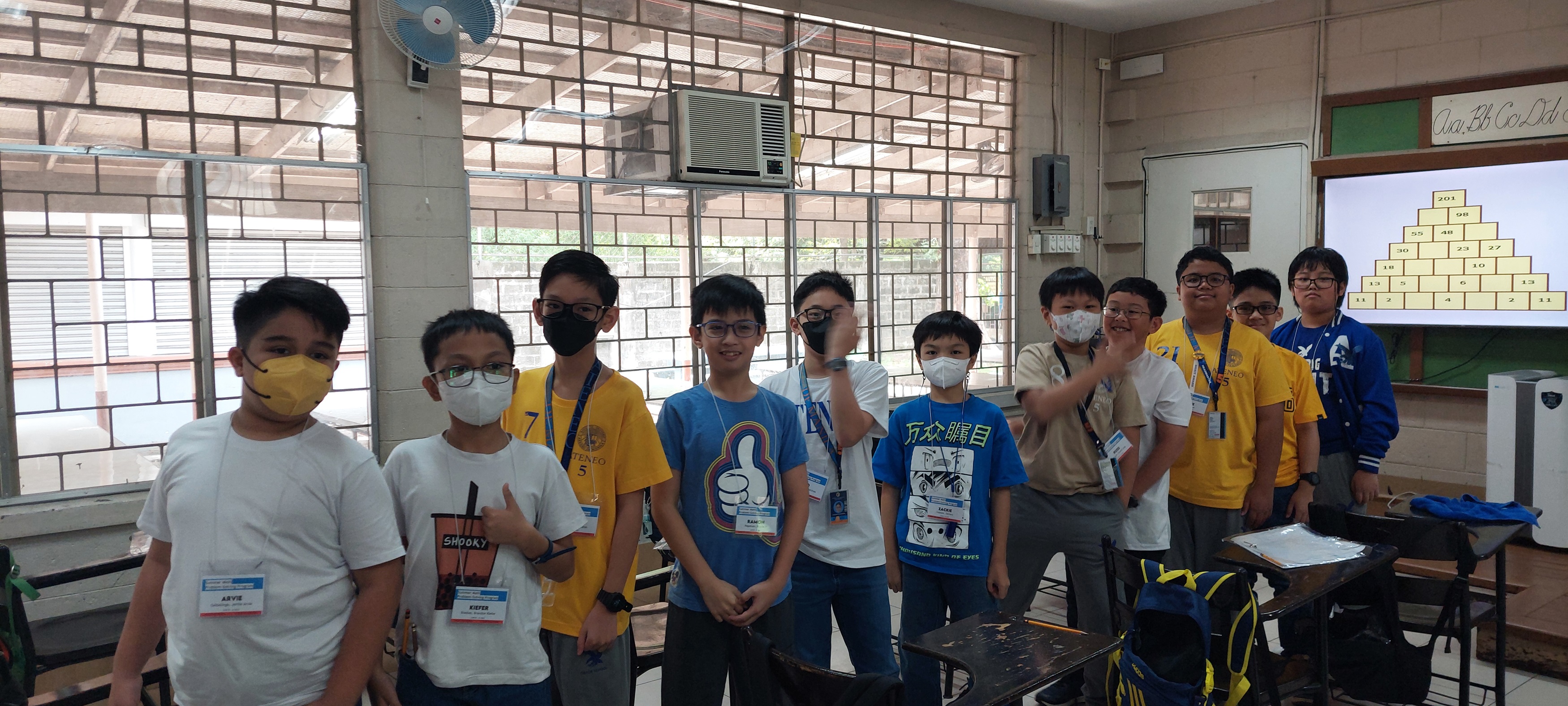
At the end of the four days, all 76 students and 8 teachers were all smiles after completing the challenging but enjoyable program. Across all levels, teachers had common sentiments: the students are self-motivated and are excited to share their insights even for problems that they find difficult. They consistently completed their assigned homework each day throughout the week. Indeed, these students have the potential to become exceptional problem-solvers.
The Summer Math Problem Solving Program is one of the key initiatives under the problem-solving thrust of the Department of Mathematics, driven by the advocacy of Fr Ben Nebres SJ to enhance STEM education in the Philippines. In the early 2000s, Fr Ben and Dr Queena N Lee-Chua launched a program to cultivate problem-solving skills among young students, with the vision that these students would eventually contribute significantly to nation-building. The program's initial iterations focused on selected talented grade school students, aiming to challenge and encourage the brightest young minds and spark their interest in STEM.
Due to the pandemic, the program was temporarily put on hold until a face-to-face session can be conducted. This year's program was facilitated by faculty members of the Higher Education Department of Mathematics, namely, Ms Eurlyne Domingo, Ms Mida Guillermo, Dr Lester Hao, and Dr Alva Aberin, with the assistance from three grade school faculty members—Ms Rose de Jesus, Ms Grace Uy-Yn, and Mr Javy Inumerable.

